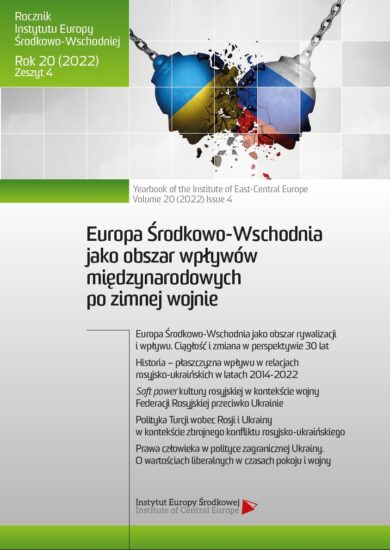Ochrona praw mniejszości narodowych
w państwach powstałych
w zachodniej części byłego
Związku Radzieckiego
Protection of the rights of national minorities in the states established
in the western part of the former Soviet Union
Author(s): Grzegorz BonusiakSubject(s): Politics / Political Sciences, Politics, Social Sciences, Sociology, Ethnic Minorities Studies, Politics and Identity
Published by: Instytut Europy Środkowej
Keywords: minority rights; protection of the rights of linguistic minorities; Russian-speaking minority; Estonia; Lithuania; Latvia; Belarus; Ukraine; Moldova
Summary/Abstract: The aim of the study is to present and compare the level of protection of the rights of national minorities in the states created by the break-upof the Soviet Union, along its former western border. The research covered:Estonia, Latvia, Lithuania, Belarus, Ukraine and Moldova. In pursuit of the stated aim, the processes occurring in the Russian Empire and the Soviet Union,which resulted in migrations and significant ethnic mixing of the population,are presented. In the next step, the population of ethnic minorities in thecountries covered by the study is presented. It is indicated who each of thecountries in question recognises as belonging to minority groups, as well aswho Russia, as heir to the former empire, recognises as minorities living inthe territories in question. In the final step, the principles of protection of therights of national minorities in the respective states were analysed. Particularattention was paid to the issue of the freedom to use and teach the languageof minority groups. The research showed that the three Baltic States, after regaining their independence, started to rebuild their national identity at theexpense of minority rights. However, by doing so, they are now graduallyimproving their status. The other three states have followed a different pathby specifically trying to protect the largest Russian-speaking language group.Growing pressure from Russia seeking to rebuild its imperial position hasexposed the flaws in such an arrangement, and Russian-speaking minoritieshave become a tool of its efforts. As a result, Belarus is on the road to losing itsown distinctiveness and reintegrating, Moldova is trying to balance althoughgradually strengthening its national identity, while Ukraine has abruptlychanged its policy since 2014 and is now diligently building its own identity atthe expense, however, of minority rights.
Journal: Rocznik Instytutu Europy Środkowo-Wschodniej
- Issue Year: 20/2022
- Issue No: 4
- Page Range: 59-83
- Page Count: 25
- Language: Polish

